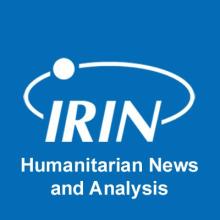Resource information
SITTWE, 31 May 2013 (IRIN) - Aid workers are calling for better health access for an estimated 140,000 internally displaced persons (IDPs) in Myanmar’s western Rakhine State, most of them Rohingya Muslims.
Although a number of NGOs and government mobile clinics are providing basic health services inside the roughly 80 camps and settlements, they are limited, and emergency health referrals remain a serious concern, they say.
According to Médecins Sans Frontières (MSF), conditions inside the camps, combined with the segregation of ethnic Buddhist Rakhine and Muslim Rohingya and ongoing movement restrictions, are having a severe impact on health care.
Movement restrictions were slapped on Rohingyas around Sittwe, the Rakhine State capital, after bouts of sectarian violence in June and October 2012.
Another concern is the negative attitude of many ethnic Rakhine to assistance provided to Muslim IDPs.
“With threats and intimidation both to health provider and patient, this becomes an irreconcilable dilemma,” Carol Jacobsen of the medical NGO Merlin told IRIN, adding that “hostile access”, limited transportation and poor security were obstacles to health care for the Muslim population...



